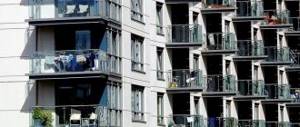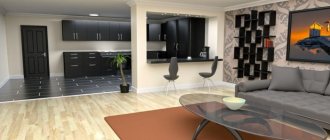House Rules
The dormitory is legally classified as residential premises. And regarding them, there are a number of regulations that each of the residents must follow:
- Housing Code . It defines the basic concepts and rules for using the premises.
- Federal Law “On the sanitary and epidemiological welfare of the population” No. 52 . Among other things, its standards set the maximum noise level permissible at night.
- Rules for the use of residential premises (approved by Decree of the Government of the Russian Federation No. 25 of 2006). They establish the responsibilities of residents, and one of them is to use the premises in such a way as not to violate the legitimate interests of neighbors. These interests include the opportunity to rest at night.
All of these regulations operate at the federal level - and they do not establish exactly what period should be considered night time. To understand how much noise you can make in a particular hostel, you need to be guided by a few more acts :
- Regional legislation determines what time is considered night. In particular, Moscow Law No. 42 dated July 12, 2002 establishes that neighbors cannot be disturbed from 11 pm to 7 am. Similar regulations apply in other regions. In particular, in Voronezh, night is considered to be the period from 22 to 7 am.
- The rules of residence that the owner establishes in relation to the hostel. Here, the regime's requirements for maintaining silence at night may be more stringent than even regional legislation.
Important! Despite the fact that regional standards are different everywhere, in most regions of the Russian Federation one should be guided by the fact that noise in the hostel is unacceptable from 10 pm to 8 am.
When is it okay to make noise and when is it not?
Noise in the hostel is unacceptable during designated hours. However, there are situations when violating the rules of silence is acceptable . These include the following:
- Actions aimed at stopping the crime. For example, loud noise is unacceptable at night - but if the alarm goes off when you try to break into the door, the culprit will be not the one who turned it on, but the attacker.
- Noise caused by emergency response or other urgent activities. For example, if a heating pipe breaks in a locked room, emergency work to eliminate the break will not be a violation.
Thus, noise is permissible, but only in emergency cases , when it is impossible to do without it.
Dormitory Rules in an Apartment Building Noise Repairs in the Apartment
- If you have special equipment, you can perform the measurement yourself. The law allows this. After this, an act is created, which must include information about witnesses, the date and place of the event. Important information is the technique used and measurement conditions;
- If you lack equipment and knowledge in measurement, you can turn to specialists.
Points defined by law The following norms are enshrined at the legislative level: The apartment must be intended only for living And common areas must be used strictly for their intended purpose Using the apartment The rights of other residents must not be infringed Maximum noise level No more than 30 dBA (from 11 pm to 7 am) and 40 dBA the rest of the time The owner is obliged to maintain his home in proper condition, suitable for habitation. Legislation calls for strict adherence to these rules. Otherwise, you will have to answer for your misdeeds. Responsibility for violation If a tenant does not comply with the rules approved by the building management, he must be held accountable for this.
What to do if neighbors disturb the peace at night?
If a dormitory neighbor breaks the rules at night and listens to music loudly, uses noisy household appliances, or makes repairs at home, he may be held accountable. The algorithm of actions here will be as follows:
- First, you should politely talk to your neighbor, asking him to stop making noise. It is possible that the problem will be resolved at this stage.
- If persuasion has no effect, you should contact the hostel administration. In many cases, the rules for using a hostel provide for the eviction of the violator - and an official appeal may provide a reason for this.
- If the noise is also associated with illegal actions (for example, there is a fight, someone is trying to break into someone else’s door, etc.), the police should be called.
- Finally, if the noise occurs regularly and the administration does not respond to complaints, the victim can file a claim in court. Either a complaint can be filed against the actions of the hostel management, or a claim for compensation for moral damage recovered from a noisy neighbor.
Local legislation may also establish administrative liability for noise at night . In this case, the culprit will be additionally fined.
Although the rules established to limit noise at night are different everywhere, usually the night is from 10 pm to 7-8 am. Anyone who makes noise in the hostel at this time can be held accountable under the law.
If you find an error, please select a piece of text and press Ctrl+Enter.
From what time and until how long can you make noise in an apartment according to the law?
As a rule, such a measure of influence is quite effective. Another time, a neighbor will wonder if loud music is worth the expense. Moreover, repeated violations of peace and quiet can double the fine. If such measures are ultimately ignored, the violator of the silence may be arrested for 15 days.
We recommend reading: Benefits for Participants of Combat Operations in the Rostov Region in 2020
Most often, neighbors are annoyed by the sounds of renovation work being carried out. But this cannot be avoided if the house is multi-story. Someone is constantly improving their comfortable living conditions, someone is moving and updating their furnishings. Repairs are frequent and noisy. Therefore, when planning such work, everyone must know the legal regulations and strictly comply with them.
Rules of the hostel in an apartment building noise
Use for any other purpose is unacceptable Use of a residential apartment Must take into account compliance with the legal rights and interests of other residents Storage of explosives, toxic and other substances that pose a threat to life in the apartment is not allowed Owners of residential premises or tenants must monitor the safety of both housing and courtyard buildings According to the rules of living in an apartment building, noise from neighbors at inappropriate times is strictly punished.
When controversial issues arise, the housing inspectorate and the court take the side of residents whose recreation rights are violated due to thin walls, even if the noise produced by the violator does not exceed the legal 45 decibels. Watch the video of a young family struggling with noise in their apartment: Smoking restrictions in public places are regulated by regulations.
Regulation of the “noise law” and its application in the apartment in 2020
If your neighbors violate the regional law on silence, then you have the right to call a local police officer or a patrol service, who will take appropriate measures. Of course, you can independently come to an agreement with a negligent neighbor, but most often such attempts end in scandals and mutual insults.
Interesting: Registration rules for Russian citizens in Moscow
For example, in the city of Moscow there is law No. 42 (the version in force in October 2020 is November 2007), which established the interval from 23:00 to 7:00 as night time. That is, you cannot make noise at this time either in an apartment building or near it. Moreover, now a longer interval of night time on weekends and holidays has not been established. That is, even on Saturday, your neighbor can start drilling, sawing, chiseling and walking on his head from seven o’clock in the morning. However, a draft amendment to this law has been submitted to the Moscow City Duma, which is still under consideration. The main change is planned to change the regime of permitted time for carrying out various types of repair work associated with an increase in noise levels in an apartment building. Visitors to the Active Citizen website decided by majority vote that the best time to carry out repairs in an apartment or house is from 9:00 to 19:00 with a two-hour break from 13:00 to 15:00.
Dormitory Rules in an Apartment Building Noise Repairs in the Apartment
The purpose of the Rules is: - ensuring the safety of living in the house; - regulation of relations for the use of common property in apartment buildings - creation of a favorable atmosphere for living; — preservation of the environment; — maintaining public order; — development and preservation of good neighborly relations. The rules are designed to promote the respect and understanding between neighbors necessary for successful cohabitation in an apartment building.
The boundaries and size of the land plot on which the apartment building is located are determined in accordance with the requirements of land legislation and legislation on urban planning, as well as property determined by decisions of general meetings of owners of the premises of the apartment building. 2. Scope of these Rules. The rules apply to all Users in the House, guests and relatives of Users, as well as employees of the Management Organization. The Rules establish the procedure for living in the House, the procedure for using residential and non-residential premises in the House, the procedure for using and maintaining common property in the House, the procedure for making mandatory payments, the procedure for resolving emergency situations and other malfunctions of engineering equipment in the House, as well as liability for failure to comply with these Rules.
Noise in the home
It should be noted that not all people react to noise the same way. Noise exposure to the same dose can cause simply unpleasant sensations for some, while for others it can cause hearing damage of varying severity. In any case, noise in which it is impossible to talk without shouting already carries the risk of hearing damage. It has been revealed that if a person who does not systematically work in a noise zone receives a temporary shift in the hearing threshold after staying in it, then the noise level in the zone most likely exceeds 90 dBA. Therefore, it is not recommended to leave your ears unprotected at a noise level of 120 dB, and at a noise level of 135 dB there is a serious health hazard.
Issues of protection from the influence of harmful factors, in particular noise, compliance and implementation of established technical and sanitary standards and rules are of the utmost importance for improving the working and living conditions of the population. Therefore, it is very important to know the parameters and requirements of the relevant standards not only during the construction (reconstruction) of buildings, but also during their operation, including when using residential premises.
19 Jul 2020 glavurist 168
Share this post
- Related Posts
- Get in line for kindergarten documents
- Sample application for refund of state duty paid to the court sample
- Mortgage Interest Deduction Separate from Property Deduction
- Certificate from a medical institution for presentation to the tax authorities
Rules for living in a residential apartment building
- it is prohibited to set up production and store any things in the attic, technical floors, ventilation chambers, technical rooms;
- It is forbidden to use the elevator for other purposes than its intended purpose, or to equip it as a warehouse, even if it is out of order;
- Evacuation passages must not be blocked or dismantled;
- cluttering of public passages and adjacent sections and evacuation stairs is not allowed;
- It is prohibited to use flammable liquids (kerosene, gasoline, etc.) when cleaning;
- It is prohibited to equip storage rooms in stairwells;
- you cannot change the direction of opening the doors of your own apartments facing the landing;
- at the discretion of the partnership, the placement of air conditioning units and satellite dishes on the roof may be prohibited;
- advertisements are allowed to be placed only in specially designated places;
- parking, washing and repairing vehicles on playgrounds, lawns, and pedestrian paths is prohibited;
- Storing waste in the local area is not permitted.
Interesting: Do you need a comprehensive insurance policy if you have compulsory insurance?
It is worth noting that there are also general provisions established by federal laws, but they begin to apply only directly in the relationships between residents. And yet, to protect your rights, you should know which regulations regulate these issues:








